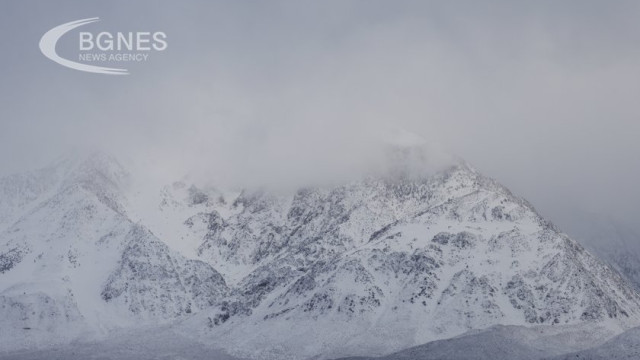If you've still been enjoying snow-covered mountains while skiing or snowboarding this winter, that experience may soon become a distant memory, as a new study has found that the era of consistently abundant snow is long gone due to the climate crisis.
A new study estimates the U.S. ski industry has lost more than $5 billion over the past two decades due to human-caused global warming, which has led to increasingly scarce snowfall in mountain ranges. Previous studies have shown that in many places precipitation is now in the form of rain rather than snow due to rising temperatures.
The new study says this situation has shortened the average U.S. ski season by five to seven days over the past half-century, costing the industry an average of $252 million a year in lost revenue and rising machine snowmaking costs.
"We are probably past the era of peak ski seasons," said Daniel Scott, a scientist at the University of Waterloo in Canada who conducted the study with colleagues at the University of Innsbruck. "Climate change is an evolving business reality for the ski industry and tourism sector."
Unusually warm winters in parts of the US, as well as in ski resorts in Europe, have illustrated the growing problems facing the pastime. Mountains in France, Austria and Bosnia were left almost entirely free of snow, forcing ski lifts to shut down and resorts to close.
In the western U.S., less than half of normal snowpack has been reported, leaving resorts scrambling for more snow production or reducing their supply to skiers.
"The record temperatures this winter are a harbinger of things to come," Scott said. "This has challenged the ability to make artificial snow in many areas and changed the visits and destination choices of millions of skiers."
Last year was the hottest globally on record, and 2024 is following suit with exceptional heat levels that set new records in January and February. The lack of a normal winter in many places is evident in the mountains, with the lack of snow not only endangering winter sports but also putting at risk a key water supply where melting snowpack feeds rivers and streams in the spring.
According to the new study, which compares the winters of the 1960s and 1970s with the two decades after 2000, the decline in ski seasons is already evident. The reduction in the number of winter seasons will continue as the world continues to warm due to the burning of fossil fuels, with ski seasons falling by 14 to 33 days by 2050, even if the world manages to significantly reduce greenhouse gas emissions and develop modern snowmaking methods.
If the world fails to curb emissions, the future will be even bleaker, the study predicts, with up to two months of the skiing year lost by mid-century.
"Average ski seasons in all U.S. regional markets are expected to become shorter in the coming decades under all future emissions options," says Scott.
"How much shorter they will be depends on the ability of all countries to fulfill their commitments to reduce emissions under the Paris Climate Agreement and on whether global warming temperatures will be kept below 2 C"./BGNES







